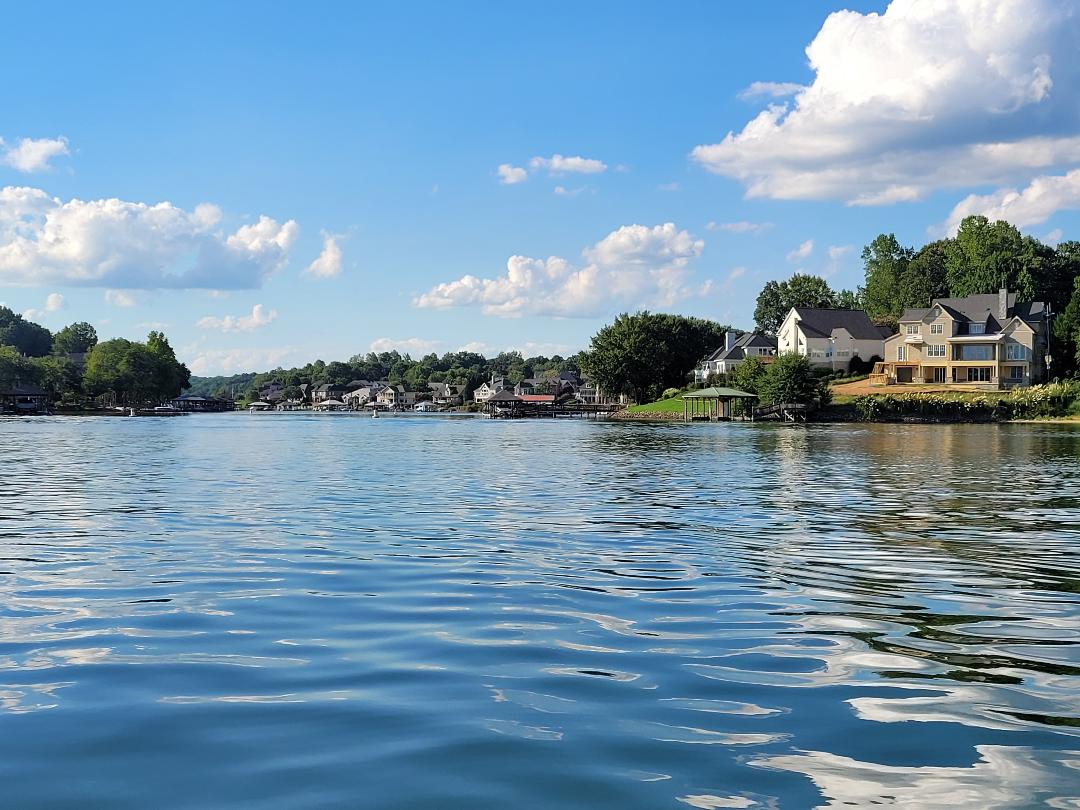
For many, living, working and playing in a lake community like Lake Norman is a dream come true but there can be some drawbacks especially in the summertime like increased traffic, noise and crowded restaurants. This article will briefly touch on some of the advantages and potential disadvantages to waterfront home ownership.
Owning waterfront residential real estate can offer several advantages, making it an attractive investment for many individuals. These advantages can vary depending on the specific location and property, but here are some common benefits:
Scenic Views: Waterfront properties often provide breathtaking and serene views of lakes, rivers, oceans, or other bodies of water. These views can enhance your overall quality of life and provide a sense of tranquility.
Recreational Opportunities: Living near water offers numerous recreational activities such as swimming, boating, fishing, kayaking, and paddleboarding. It can become a year-round playground for outdoor enthusiasts.
Investment Potential: Waterfront properties tend to hold their value well over time. Limited waterfront land availability and high demand can lead to long-term appreciation, making it a potentially profitable investment.
Privacy and Seclusion: Waterfront properties often offer more privacy due to the natural barrier of the water. This can create a sense of seclusion and exclusivity.
Relaxation and Stress Reduction: The sound of water and the proximity to nature can have a calming effect, reducing stress levels and promoting relaxation.
Unique Architecture and Design: Many waterfront homes are designed to take advantage of the views and natural surroundings, resulting in unique and aesthetically pleasing architectural features.
Rental Income: Waterfront properties can be rented out as vacation homes, providing a source of passive income, especially in popular tourist destinations.
Potential for Customization: Waterfront properties often come with larger plots of land, giving owners the opportunity to customize their outdoor spaces with docks, decks, gardens, and more.
Strong Community: Waterfront communities often have a strong sense of camaraderie and shared interests, which can foster a close-knit and supportive neighborhood.
Wildlife and Nature: Waterfront properties are typically close to nature and may offer opportunities to observe and interact with local wildlife and ecosystems.
However, it’s essential to consider some potential drawbacks and challenges of waterfront property ownership as well, including:
Higher Costs: Waterfront properties tend to be more expensive than comparable inland properties due to their location and desirability.
Environmental Risks: Waterfront properties can be vulnerable to flooding, erosion, and other environmental risks. Owners may need to invest in flood insurance and take preventive measures.
Maintenance Costs: Waterfront properties often require more maintenance due to exposure to the elements. This can include regular upkeep of docks, seawalls, and landscaping.
Regulations and Zoning: Waterfront properties may be subject to specific zoning and regulatory restrictions, which can limit development and use options.
Accessibility: Remote waterfront locations may have limited access to amenities, services, and transportation, which can be a consideration for year-round living.
Market Volatility: While waterfront properties can appreciate over time, their value can also be affected by economic downturns and changing market conditions.
Before purchasing waterfront residential real estate, it’s crucial to conduct thorough research, consider your lifestyle preferences, and evaluate your financial capacity to ensure it aligns with your goals and expectations. Consulting with real estate professionals and experts in the area can provide valuable insights into the specific advantages and challenges of a particular waterfront property.


 Facebook
Facebook
 X
X
 Pinterest
Pinterest
 Copy Link
Copy Link

